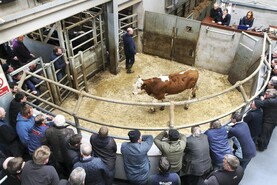Farmers have been asked to achieve higher environmental standards and it's not being reflected in the price they're getting for what they produce, chair of the 2030 agri-food strategy Tom Arnold has said.
“If society wants the agri-food sector to fully contribute to achieving climate goals, there has to be greater framework of policy and incentives to assist in that direction, so that farmers, if they're being asked to do something, they’re rewarded for it,” Arnold said.
The comments came during a Teagasc signpost series webinar on Friday morning, dealing with the environmental ambition of the new 10-year strategy for farming.
Environmental services
Arnold highlights that the sentiment within the 2030 agri-food strategy is that the role of farms is going to have to move from being seen as purely a producer of food.
“Within that, there's a debate as to what price foods should get and to a producer of agri-environmental services.
"There's a lot of a lot of balancing to be done here and a lot of policy evolution to take place,” Arnold continued.
“Certainly the role of the farmer in contributing in a positive way towards achieving our national climate targets, I think has to be recognised.
“I started out with this exercise by hoping that we could get to the point where we would see the sector as being a positive contributor to the solution of climate change and I think that's very much the spirit with which this document has been written.”
Policy accountability
Arnold has said that a midterm review should take place of the new farming strategy for the decade.
“By about 2023 or 2024, we would need to see positive developments in a whole number of areas and in particular the agri-environmental indicators,” Arnold said.
“We have to get on a trajectory of change which ensures that we're actually going to achieve the 2030 targets that we are committed to.
“There obviously will be other indicators of how quickly we're delivering better services in rural areas, such as the rollout of broadband for example.
"We should be building in that sort of a culture of continuous review and assessment. Accountability for are the policies being put in place.”






 This is a subscriber-only article
This is a subscriber-only article











SHARING OPTIONS: